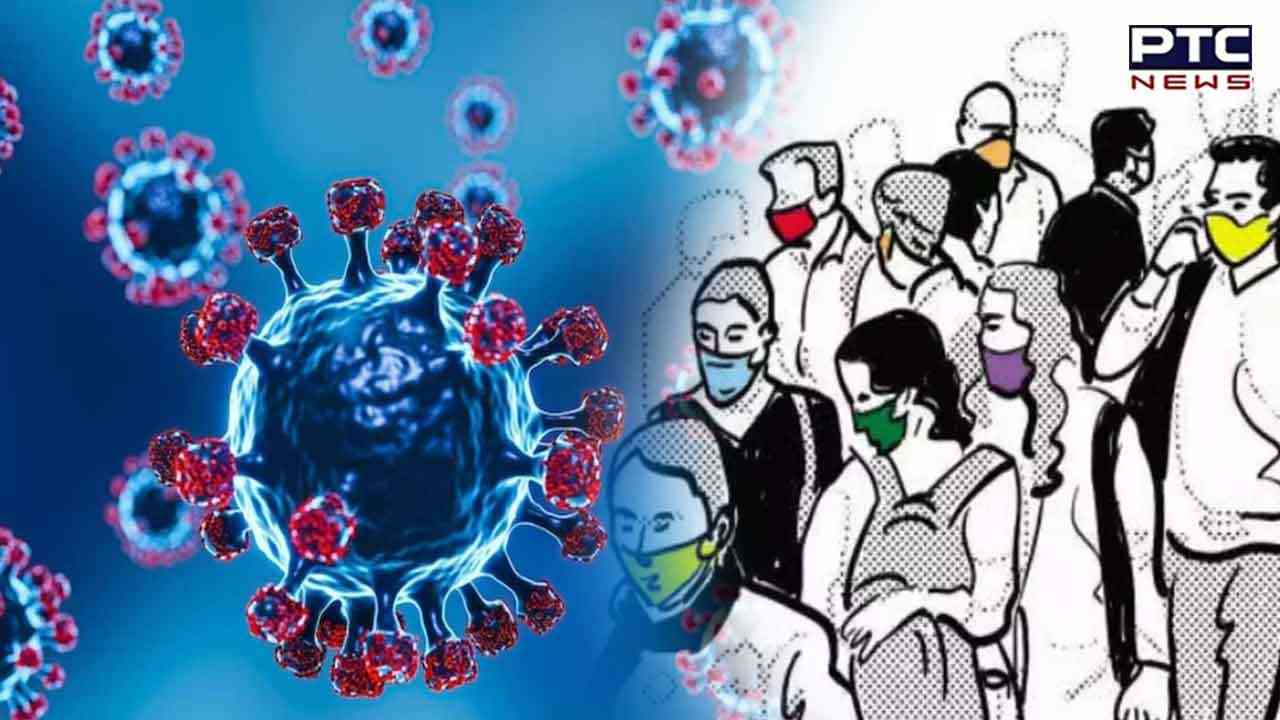

All you need to know about symptoms, treatment, dos and don'ts of H3N2 influenza a virus
PTC News Desk: Sources from the Central government said that H3N2 is a sub-type of the Influenza A virus that has claimed two lives in India today. Between them one died in Haryana and the other was from Karnataka. Sources, in the government said that there are around 90 cases of the flu that is caused by this virus and it is reported across the country. In the past H3N2 has caused influenza outbreaks in the country. The symptoms of the flu among people takes place by the change in weather from extremely cold to warm.
What is H3N2 virus?
H3N2 virus is an influenza and it causes respiratory infection. This virus can also be seen infecting the birds and mammals. H3N2 virus is a subtype of Influenza A virus and it is one of the important cause of human influenza, according to Centres for Disease Control (CDC) and World health Organization (WHO).

Also Read: India reports 2 deaths due to H3N2 influenza; 1 each in Haryana, Karnataka
What are the symptoms?
In a recent study by WHO, avian, swine and other zoonotic influenza infections in human beings causing disease ranging from respiratory infection (fever and cough) to rapid progression to severe pneumonia, acute respiratory distress syndrome, shock and even death.
Here are some of the common symptoms of H3N2 virus are:
Chills
Coughing
Fever
Nausea
Vomiting
Throat ache/sore throat
An ache in muscles and body
In some cases, diarrhoea
Sneezing and runny nose
It is very important to see a doctor if any person is facing difficulty in breathing, pain or discomfort in chest, continuous fever and pain in throat while gulping down the food.
How does the virus spread?
The contagious H3N2 flu is being transmitted from one person to another through sneezing, or talking by an infected individual or coughing. Pregnant women, young children, elderly adults, and persons with underlying medical issues are at a higher risk of flu-related complications.
What are the precautions to be taken?
Since the virus attacks the respiratory tract, it is very important to:
If the oxygen saturation level is less than 95 per cent, a visit to the doctor is mandatory.
Experts caution against self-medication in such cases
Keep checking the oxygen level continuously with the help of Pulse Oximeter
If the oxygen saturation level is less than 90 per cent, then intensive care may be required.
The treatment options for this disease
Anyone affected from this disease is always advised to take rest and should intake lots of fluids. If any patient has severe symptoms or is at a high risk of problems, a doctor may also recommend antiviral drugs such as oseltamivir and zanamivir. According to WHO, ideally in 48 hours the onset of the symptoms are visible.
Dos and Don'ts
The virus can spread rapidly among humans from infected people. So, experts say it is very important to follow some protocols:
Regularly wash your hands with water and soap
Wear face masks and avoid crowded areas
Avoid touching your nose and mouth
Cover your nose and mouth properly while coughing and sneezing
Stay hydrated and consume plenty of fluids
In case of fever and bodyache, take paracetamol
They also say it's better to avoid:
Spitting in public areas
Using contact-based greetings such as shaking hands
Self-medicating and taking antibiotics or any other medications without consulting a doctor
Eating while seated next to other people
The Indian Medical Association (IMA) has, meanwhile, urged doctors to not prescribe antibiotics to patients before confirming whether the infection is bacterial, as this can build up a resistance. Most current cases of fever, cough, sore throat, and body ache are cases of influenza, for which antibiotics are not needed.
- With inputs from agencies
